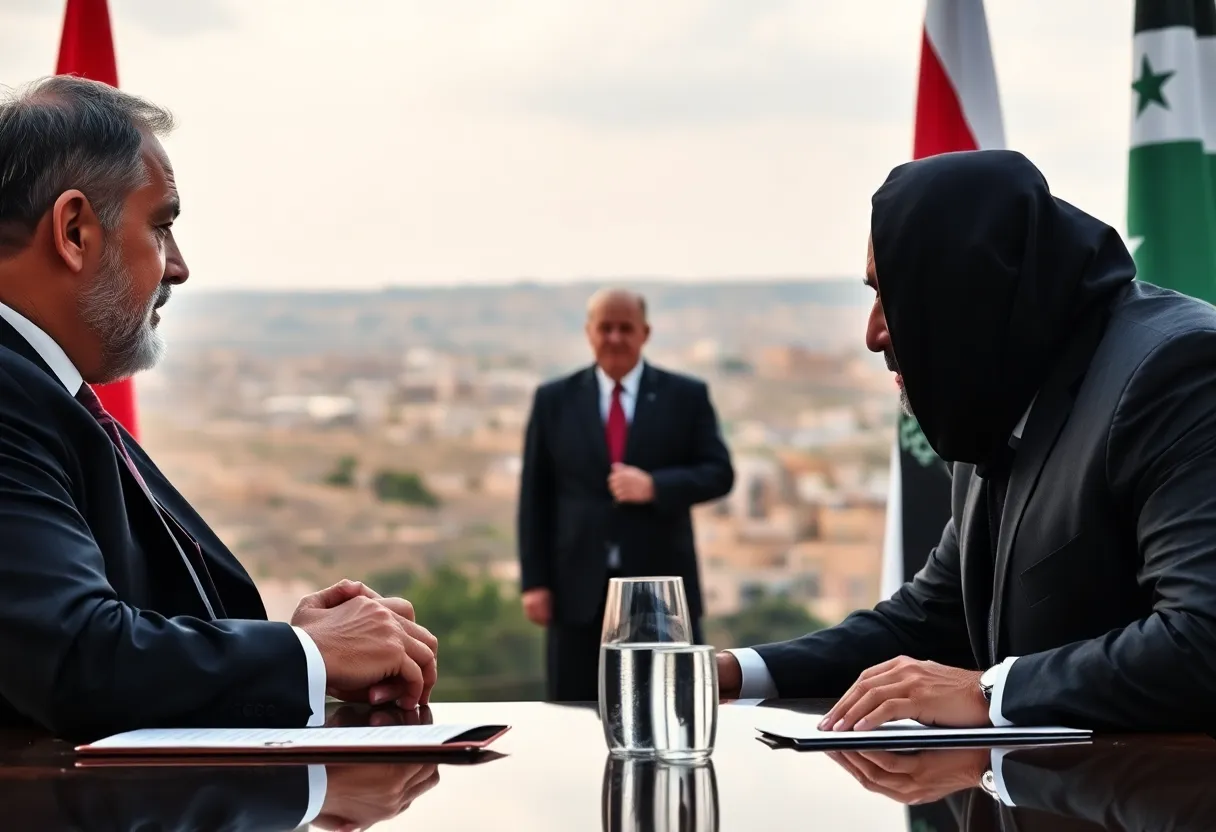News Summary
President Trump’s recent proposal for the United States to take control of Gaza has ignited significant debate, suggesting the displacement of Palestinian residents to Jordan and Egypt. This controversial idea was presented during a meeting with King Abdullah II of Jordan amid ongoing military tensions in Gaza. Both Jordan and Egypt have firmly rejected the notion of forced displacement, emphasizing the need for a sustainable rebuilding plan that respects Palestinian residents. As the humanitarian crisis in Gaza escalates, the complexities surrounding this proposal raise serious ethical concerns.
Trump’s Controversial Proposal for Gaza Control Raises Eyebrows
In a recent bold move, President Trump has sparked intense debates and raised eyebrows with his startling proposition: the United States should take control of Gaza, and in doing so, displace its Palestinian residents to neighboring Jordan and Egypt. This proposal came to light during a significant meeting with King Abdullah II of Jordan, marking the Jordanian leader’s first visit to the White House since Trump began his second term.
A Cautious Meeting at the White House
The meeting between the two leaders was charged with tension as Trump pressed Abdullah about accepting displaced Palestinians. This comes on the heels of renewed military assaults from Israel on Gaza, which have left the region in turmoil since October 2023. Despite the recent ceasefire that many hoped would bring relief, concerns are growing that it could collapse under pressure, particularly with Israel threatening to resume bombings if Hamas fails to release Israeli captives.
The Proposal: A Recipe for Controversy?
Trump’s proposition that the U.S. would effectively “take over” Gaza once emptied of its residents, has drawn widespread condemnation, with critics likening it to ethnic cleansing. He claimed this move would provide much-needed stability to the Middle East, stating that controlling Gaza would be “not a complex thing to do.” However, many see this as an oversimplification of a deeply rooted issue.
Jordan and Egypt’s Firm Rejection
Both Jordan and Egypt have made clear their rejection of Trump’s ideas, especially regarding the forced displacement of Palestinians. King Abdullah articulated Jordan’s steadfast stance against this approach, emphasizing that the priority should be on rebuilding Gaza without uprooting its long-suffering residents. His Foreign Minister, Ayman Safadi, further noted there is a well-organized Arab plan to rebuild Gaza, explicitly designed to keep its residents in their homeland.
A Complex Situation Ahead
In this tangled web of diplomacy, it’s essential to understand the complexities. Abdallah faced the difficult task of navigating his country’s clear opposition to Trump’s proposals while also wanting to maintain a positive relationship with the United States, which relies heavily on its aid. The balancing act wasn’t lost on either leader as Trump even reminisced about his real estate days, envisioning Gaza as a sparkling “diamond.”
Underlying Political Realities
Critics have voiced that Trump’s plan appears disconnected from the real-life struggles of the Palestinian people. His comments suggesting that Palestinians would prefer life in Jordan or Egypt instead of Gaza failed to recognize the deep emotional and cultural attachments many have to their homeland.
The Bigger Picture
With the humanitarian crisis in Gaza deteriorating due to the ongoing military actions, coupled with Trump’s shift in U.S. foreign policy regarding Palestinian rights, the future of Gaza remains uncertain. Both leaders seem to be preparing for broader discussions with other Arab nations as they seek a more comprehensive approach to the situation at hand.
In Conclusion
As the U.S. navigates this diplomatic landscape, the global community watches closely. King Abdullah’s cautious responses throughout the meeting hint at the complexities and sensitivities surrounding the Palestinian issue. Moving forward, it becomes increasingly crucial to address the plight of the Palestinian people with empathy and understanding that fosters hope for a more stable and peaceful future.
Deeper Dive: News & Info About This Topic
- The New York Times
- Wikipedia: Gaza
- BBC News
- Google Search: Trump Gaza proposal
- The Washington Post
- Encyclopedia Britannica: Gaza
- The Intercept
- Google News: Gaza 2025
- CNN







